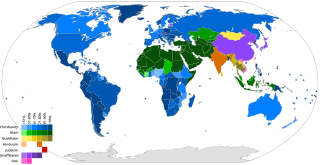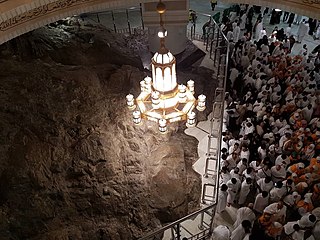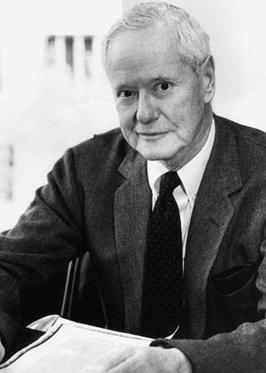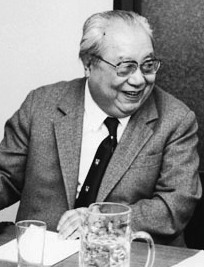This article relies largely or entirely on a single source .(June 2022) |
In sociology, role homogeneity is the degree of overlap amongst the different roles performed by different members of a community. [1]
This article relies largely or entirely on a single source .(June 2022) |
In sociology, role homogeneity is the degree of overlap amongst the different roles performed by different members of a community. [1]
Rural sociologists often note that amongst rural communities there exists a very high degree of role homogeneity, that is, one person may perform the duties of banker, coach, deacon, school board member, and neighbor.
Sociologists have demonstrated that in areas of strong homogeneity, there is a general tendency to repress controversy. As a result, when disagreements arise, they can result in serious crises. Such communities tend to have local newspapers which are more oriented towards marketing, rather than news. What news is published, in a highly-homogeneous society, tends to focus on non-controversial topics and avoid "bad news".

A sect is a subgroup of a religious, political, or philosophical belief system, usually an offshoot of a larger group. Although the term was originally a classification for religious separated groups, it can now refer to any organization that breaks away from a larger one to follow a different set of rules and principles. Sects are usually created due to perception of heresy by the subgroup and/or the larger group.

Sociology of religion is the study of the beliefs, practices and organizational forms of religion using the tools and methods of the discipline of sociology. This objective investigation may include the use both of quantitative methods and of qualitative approaches.
Sociologists have identified a number of different types of rural communities, which have arisen as a result of changing economic trends within rural regions of industrial nations.

Robert King Merton was an American sociologist who is considered a founding father of modern sociology, and a major contributor to the subfield of criminology. He served as the 47th president of the American Sociological Association. He spent most of his career teaching at Columbia University, where he attained the rank of University Professor. In 1994 he was awarded the National Medal of Science for his contributions to the field and for having founded the sociology of science.

Social class in the United States refers to the idea of grouping Americans by some measure of social status, typically economic. However, it could also refer to social status or location. The idea that American society can be divided into social classes is disputed, and there are many competing class systems.

Urban sociology is the sociological study of life and human interaction in metropolitan areas. It is a normative discipline of sociology seeking to study the structures, environmental processes, changes and problems of an urban area and by doing so provide inputs for urban planning and policy making. In other words, it is the sociological study of cities and their role in the development of society. Like most areas of sociology, urban sociologists use statistical analysis, observation, social theory, interviews, and other methods to study a range of topics, including migration and demographic trends, economics, poverty, race relations and economic trends. Urban sociology is one of the oldest sub-disciplines of sociology dating back to the mid-nineteenth century.

Fei Xiaotong or Fei Hsiao-tung was a Chinese anthropologist and sociologist. He was a pioneering researcher and professor of sociology and anthropology; he was also noted for his studies in the study of China's ethnic groups as well as a social activist. Starting in the late 1930s, he and his colleagues established Chinese sociology and his works were instrumental in laying a foundation for the development of sociological and anthropological studies in China, as well as in introducing social and cultural phenomena of China to the international community. His last post before his death in 2005 was as Professor of Sociology at Peking University.
The out-group homogeneity effect is the perception of out-group members as more similar to one another than are in-group members, e.g. "they are alike; we are diverse". Perceivers tend to have impressions about the diversity or variability of group members around those central tendencies or typical attributes of those group members. Thus, outgroup stereotypicality judgments are overestimated, supporting the view that out-group stereotypes are overgeneralizations. The term "outgroup homogeneity effect", "outgroup homogeneity bias" or "relative outgroup homogeneity" have been explicitly contrasted with "outgroup homogeneity" in general, the latter referring to perceived outgroup variability unrelated to perceptions of the ingroup.

Public sociology is a subfield of the wider sociological discipline that emphasizes expanding the disciplinary boundaries of sociology in order to engage with non-academic audiences. It is perhaps best understood as a style of sociology rather than a particular method, theory, or set of political values. Since the twenty-first century, the term has been widely associated with University of California, Berkeley sociologist Michael Burawoy, who delivered an impassioned call for a disciplinary embrace of public sociology in his 2004 American Sociological Association (ASA) presidential address. In his address, Burawoy contrasts public sociology with what he terms "professional sociology", a form of sociology that is concerned primarily with addressing other academic sociologists.
A community of place or place-based community is a community of people who are bound together because of where they reside, work, visit or otherwise spend a continuous portion of their time. Such a community can be a neighborhood, town, coffeehouse, workplace, gathering place, public space or any other geographically specific place that a number of people share, have in common or visit frequently. A community offers many appealing features of a broader social relationship: Safety, familiarity, support and loyalties as well as appreciation. Appreciation that is founded on efforts and contribution to the community, rather than the efforts, rank or status of an individual.

Various sociological classifications of religious movements have been proposed by scholars. In the sociology of religion, the most widely used classification is the church-sect typology. The typology is differently construed by different sociologists, and various distinctive features have been proposed to characterise churches and sects. On most accounts, the following features are deemed relevant:

The sociology of the Internet involves the application of sociological theory and method to the Internet as a source of information and communication. The overlapping field of digital sociology focuses on understanding the use of digital media as part of everyday life, and how these various technologies contribute to patterns of human behavior, social relationships, and concepts of the self. Sociologists are concerned with the social implications of the technology; new social networks, virtual communities and ways of interaction that have arisen, as well as issues related to cyber crime.

Sociology is a social science that focuses on society, human social behavior, patterns of social relationships, social interaction, and aspects of culture associated with everyday life. It uses various methods of empirical investigation and critical analysis to develop a body of knowledge about social order and social change. While some sociologists conduct research that may be applied directly to social policy and welfare, others focus primarily on refining the theoretical understanding of social processes and phenomenological method. Subject matter can range from micro-level analyses of society to macro-level analyses.
Triad refers to a group of three people in sociology. It is one of the simplest human groups that can be studied and is mostly looked at by microsociology. The study of triads and dyads was pioneered by German sociologist Georg Simmel at the end of the nineteenth century.

In the People's Republic of China, the study of sociology has been developing steadily since its reestablishment in 1979. Chinese sociology has a strong focus on applied sociology, and has become an important source of information for Chinese policymakers.
The Rural Sociological Society (RSS) is a professional social science association that promotes the generation, application, and dissemination of sociological knowledge. The RSS seeks to enhance the quality of rural life, communities, and the environment. It was officially established on December 29, 1937, in order to promote the development of rural sociology through teaching, research and extension. Membership in the RSS includes persons professionally employed in the field of rural sociology, or those interested in the objectives of the Society. The RSS holds meetings in different locations every year.

A social network is a social structure made up of a set of social actors, sets of dyadic ties, and other social interactions between actors. The social network perspective provides a set of methods for analyzing the structure of whole social entities as well as a variety of theories explaining the patterns observed in these structures. The study of these structures uses social network analysis to identify local and global patterns, locate influential entities, and examine network dynamics.
A clique, in the social sciences, is a group of individuals who interact with one another and share similar interests. Interacting with cliques is part of normative social development regardless of gender, ethnicity, or popularity. Although cliques are most commonly studied during adolescence and middle childhood development, they exist in all age groups. They are often bound together by shared social characteristics such as ethnicity and socioeconomic status. Examples of common or stereotypical adolescent cliques include athletes, nerds, and "outsiders".

Medical sociology is the sociological analysis of medical organizations and institutions; the production of knowledge and selection of methods, the actions and interactions of healthcare professionals, and the social or cultural effects of medical practice. The field commonly interacts with the sociology of knowledge, science and technology studies, and social epistemology. Medical sociologists are also interested in the qualitative experiences of patients, often working at the boundaries of public health, social work, demography and gerontology to explore phenomena at the intersection of the social and clinical sciences. Health disparities commonly relate to typical categories such as class and race. Objective sociological research findings quickly become a normative and political issue.

Sociology is the methodological and scientific study of human society. It studies the social interactions between a person and society as well as the social patterns between societies, groups, nations, institutions, etc. Sociologists research the relationships between social structures and human lives. They also aim to solve the corresponding social issues revealed from the researches.